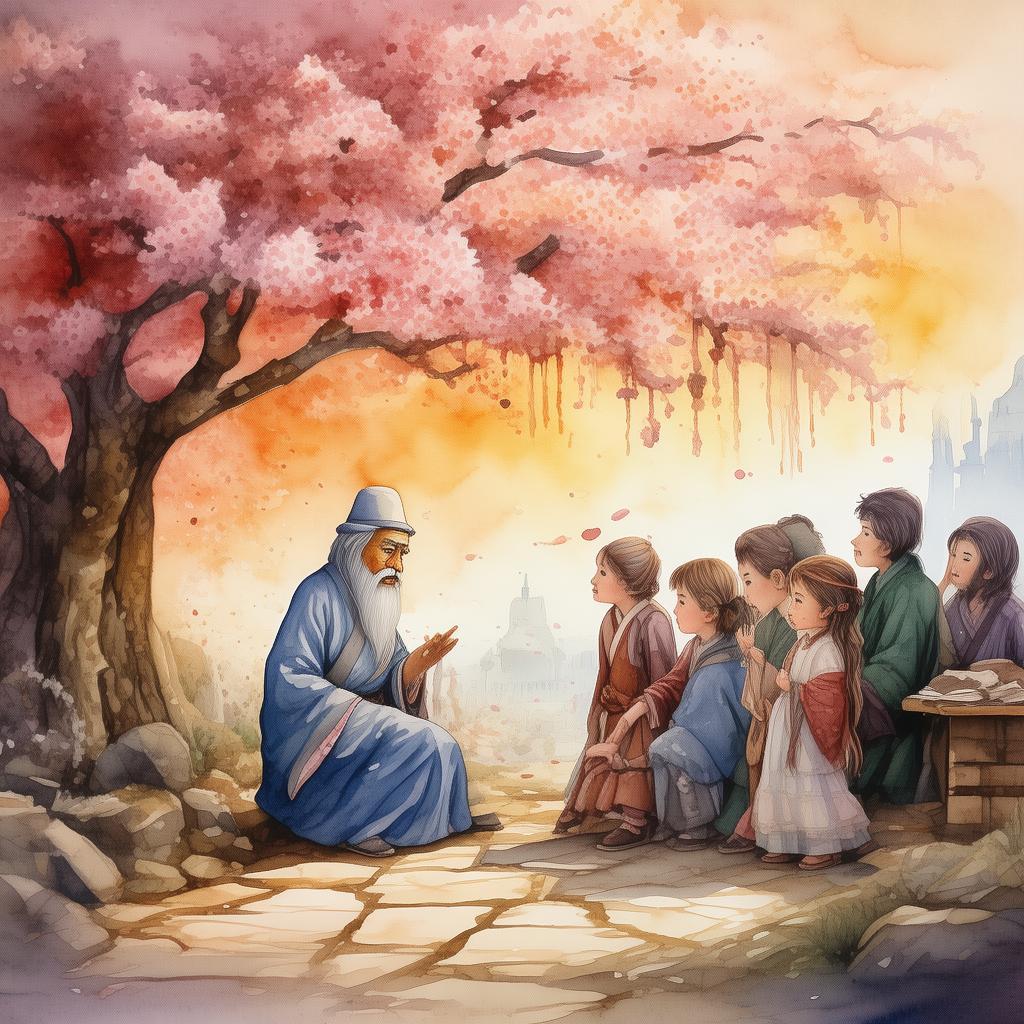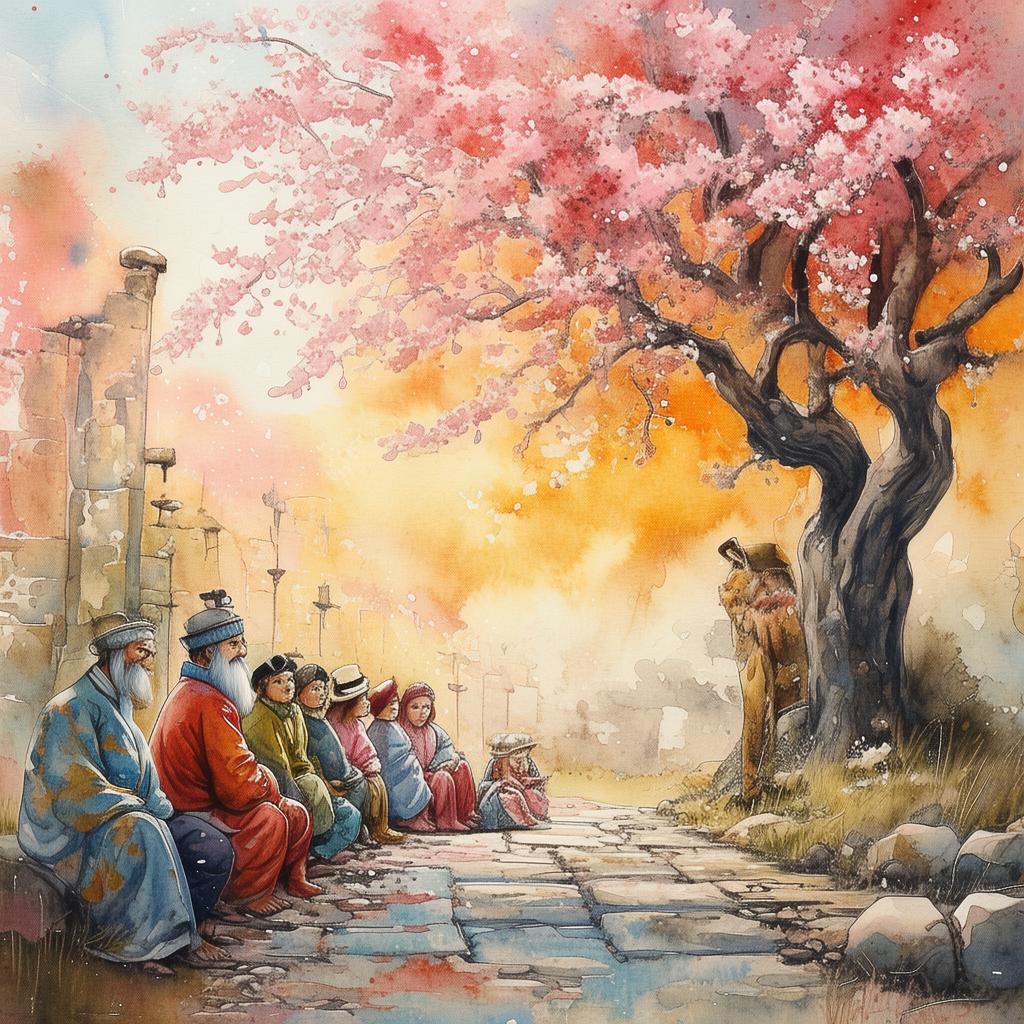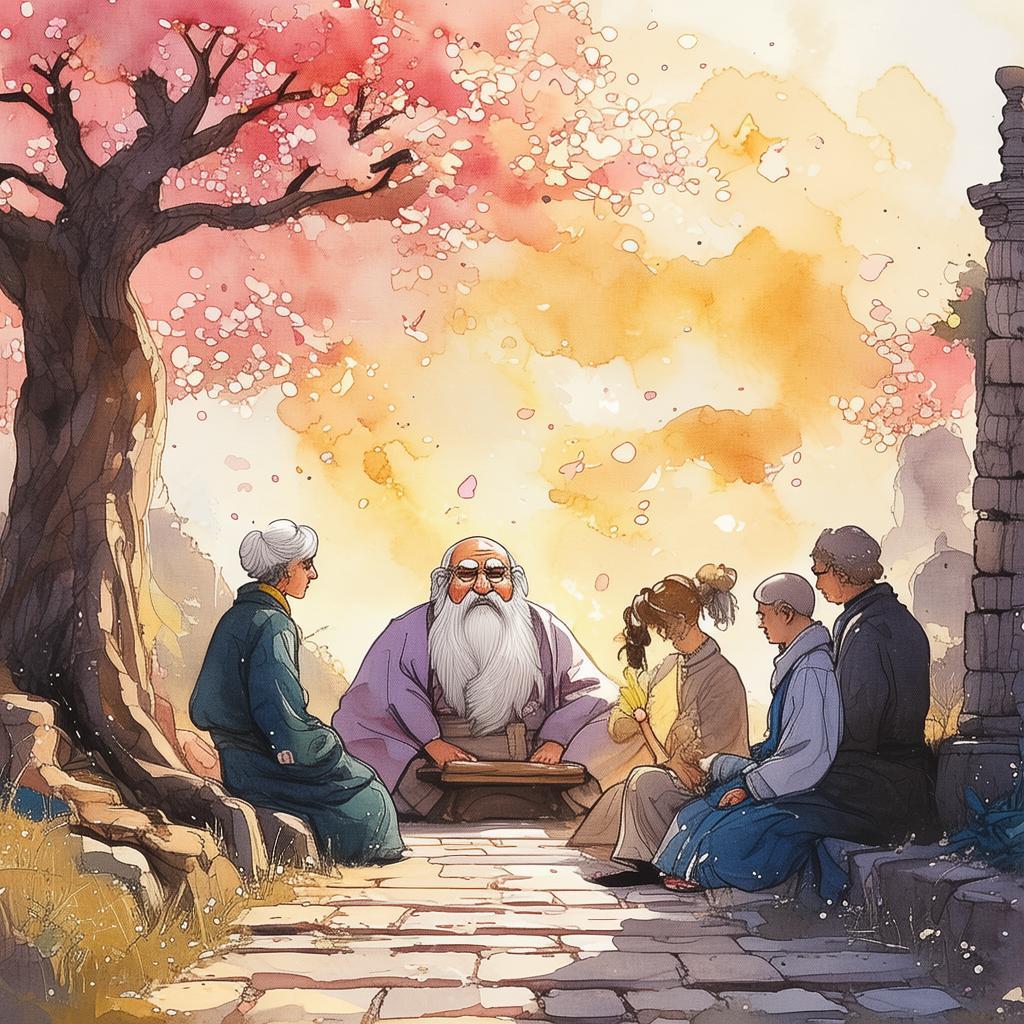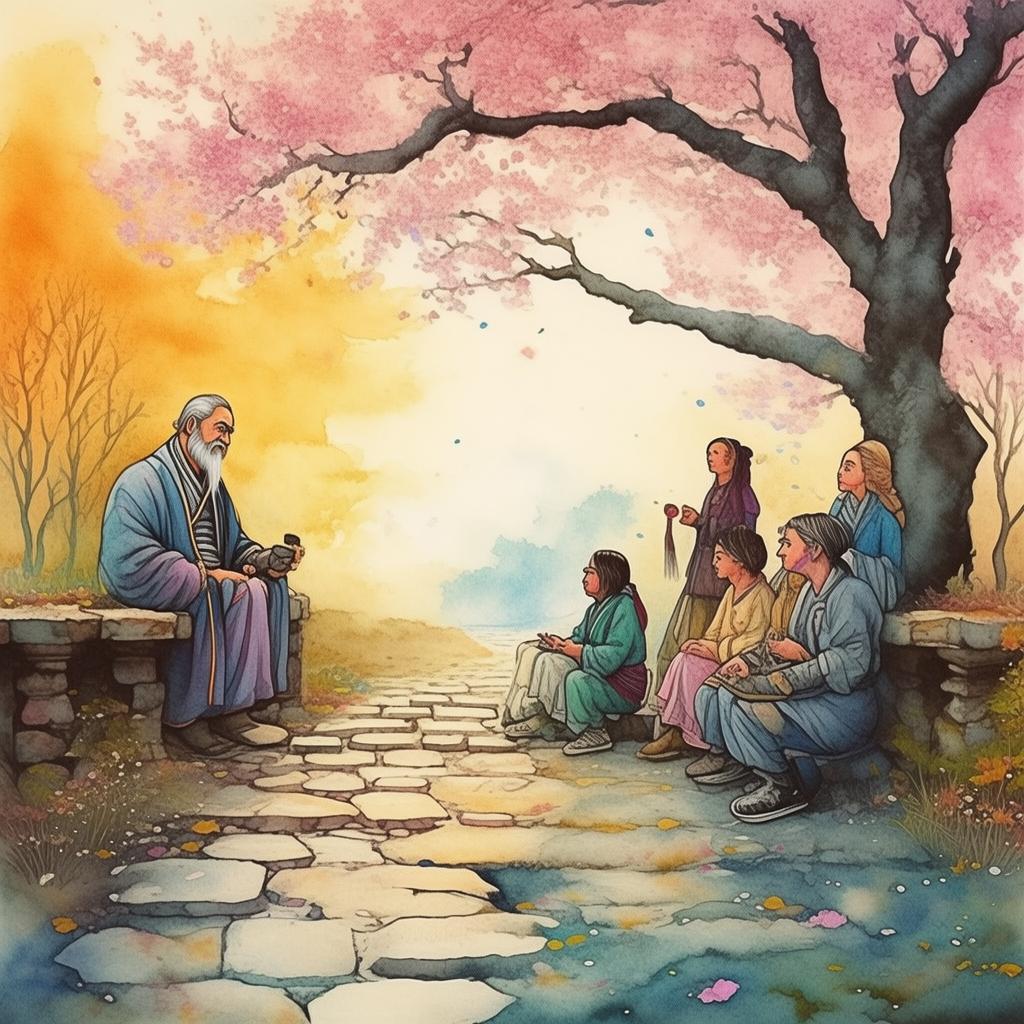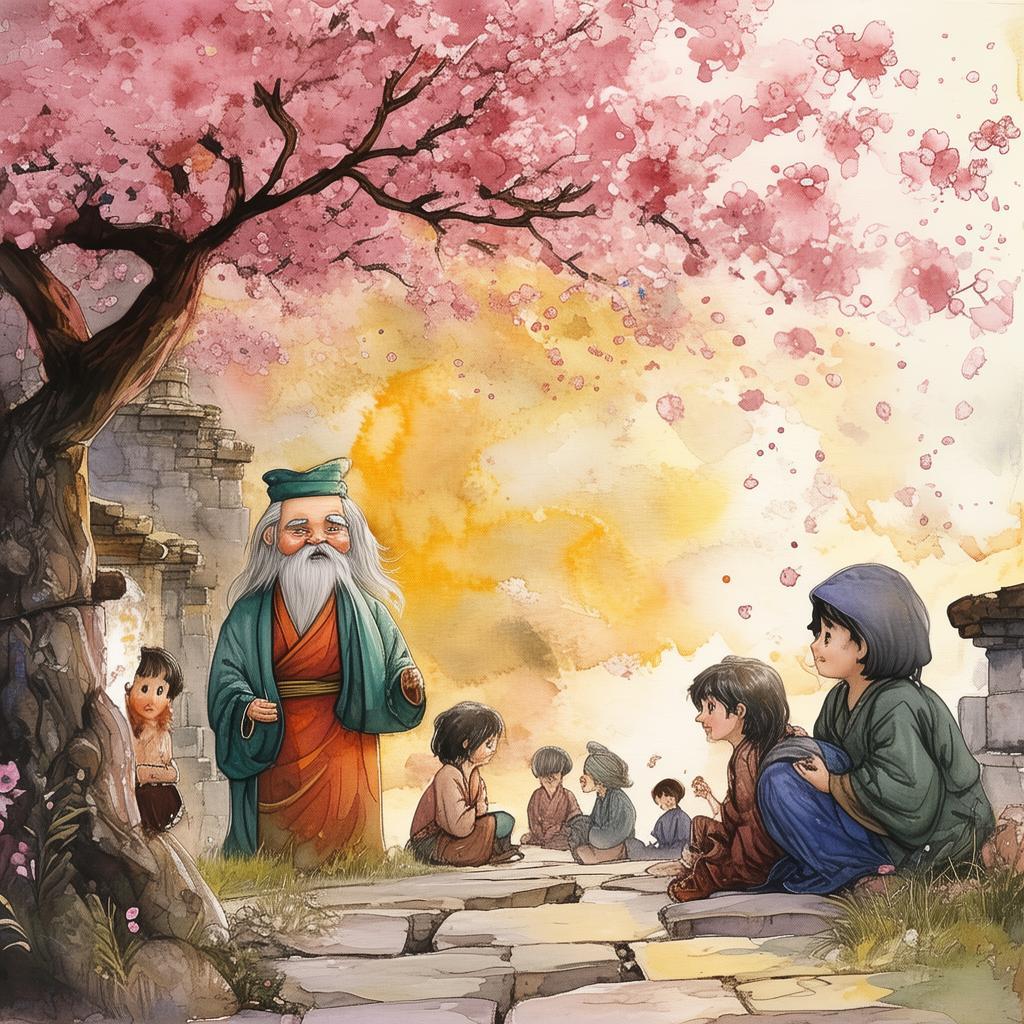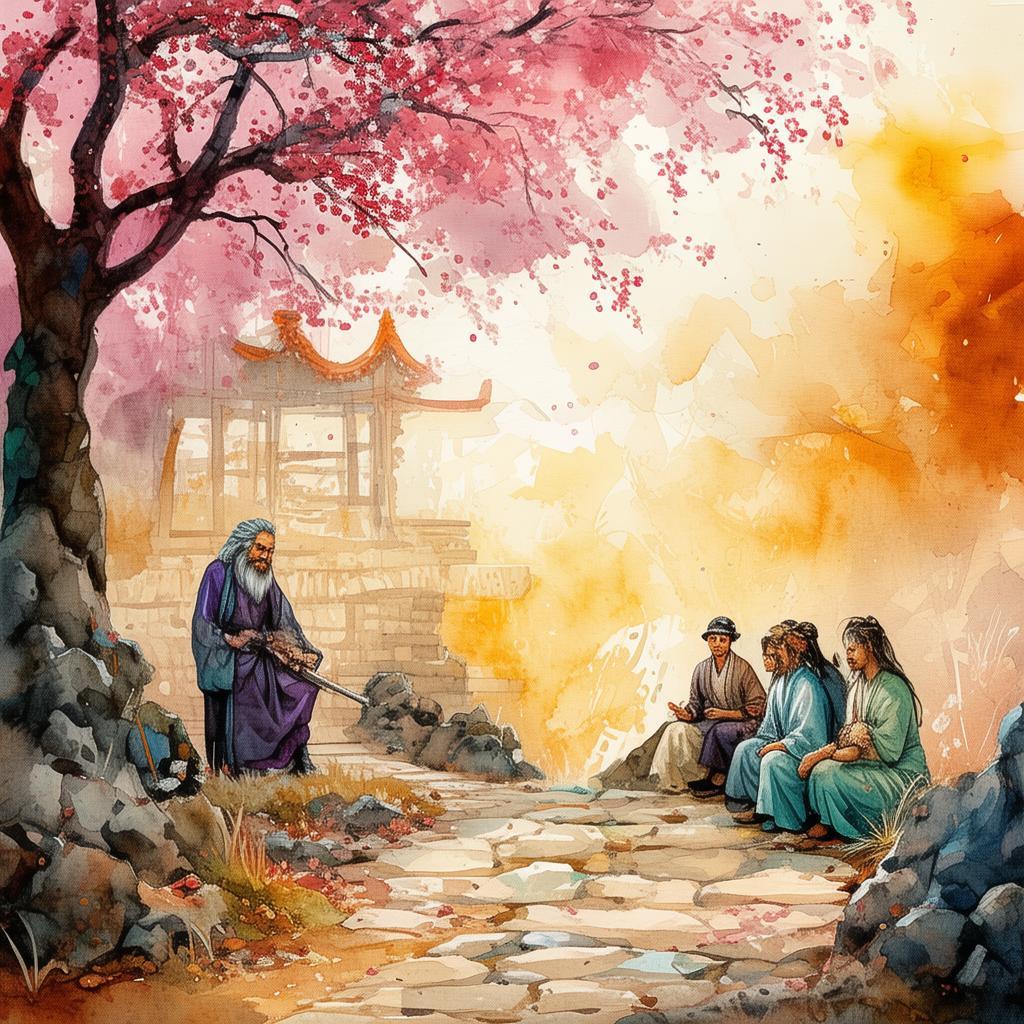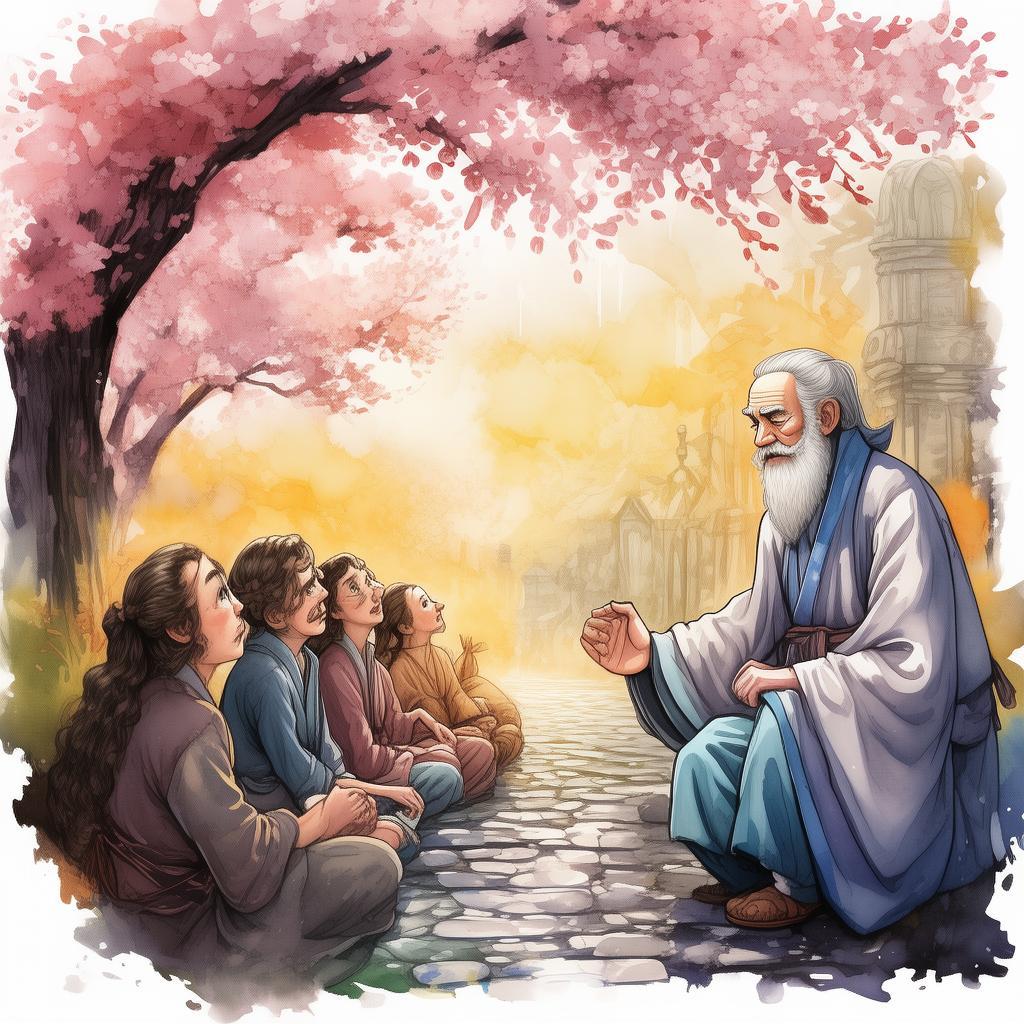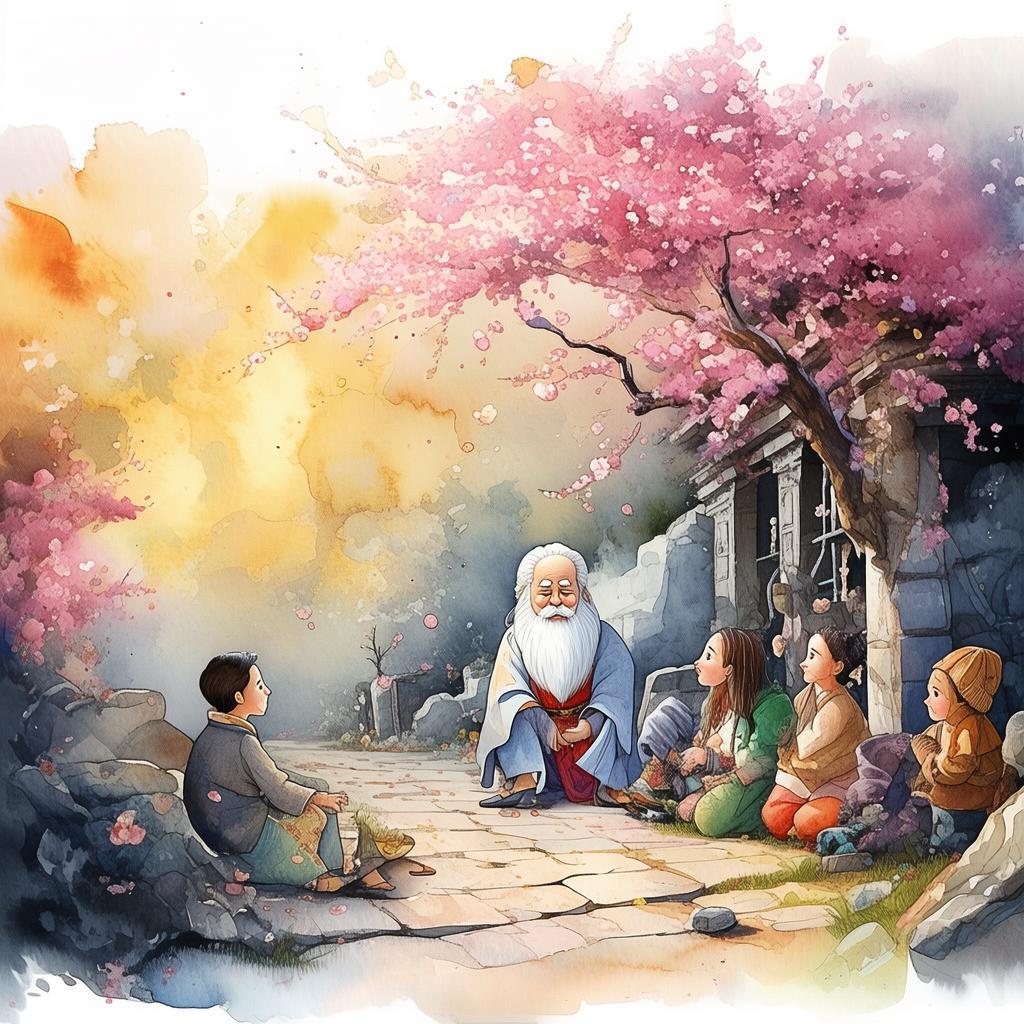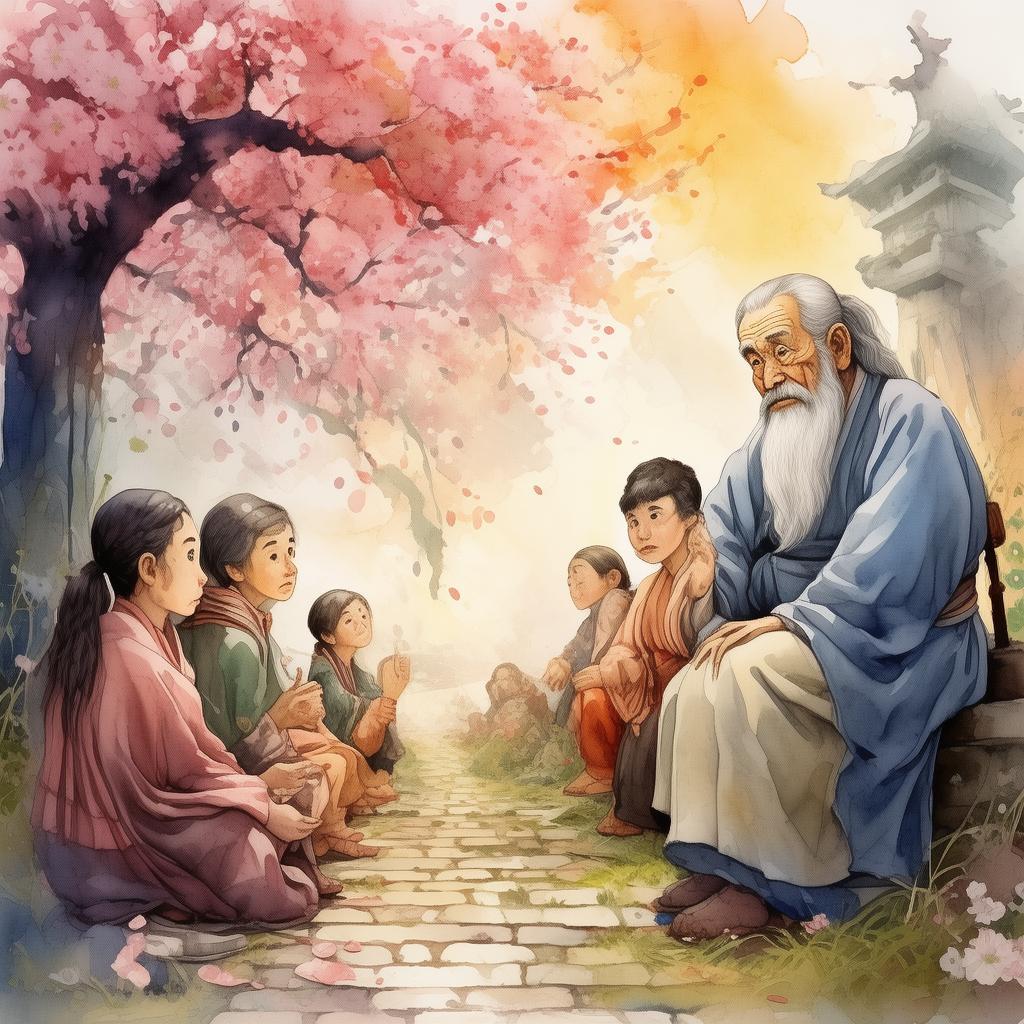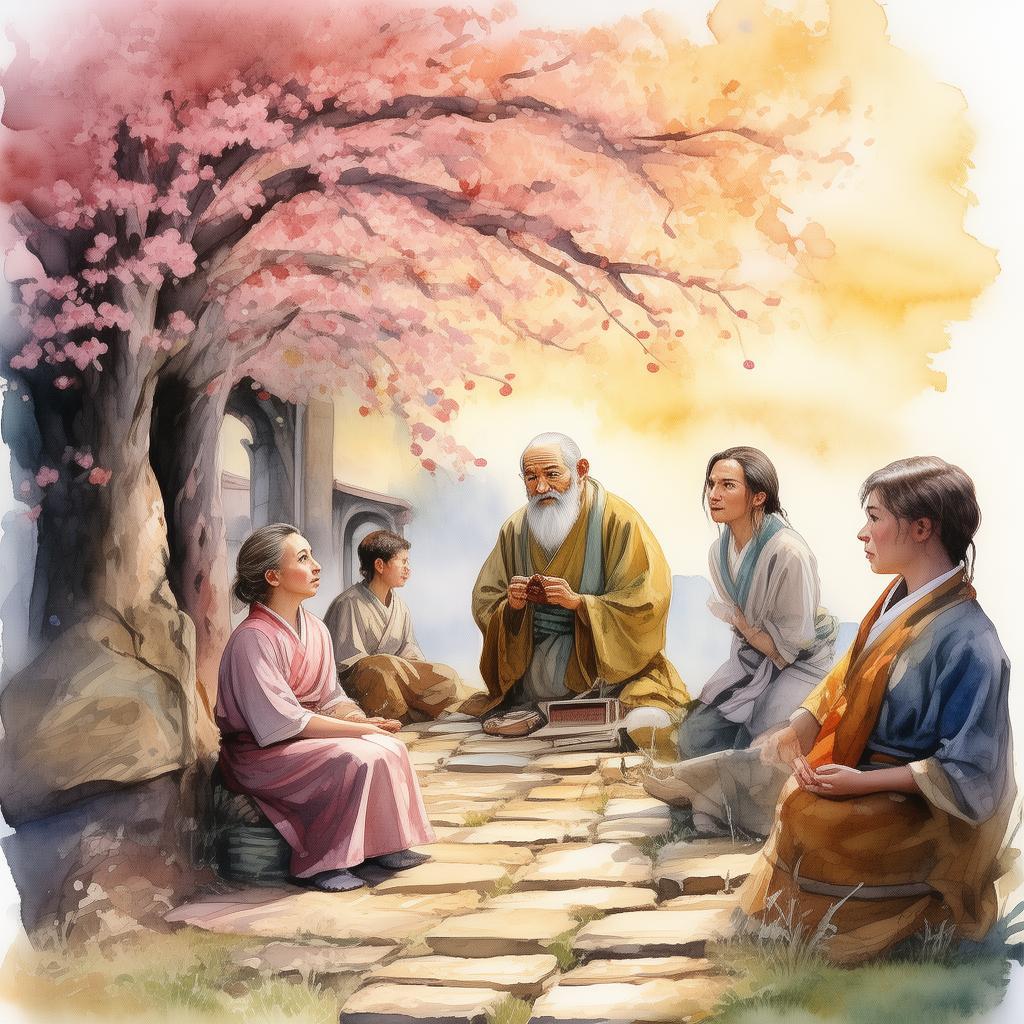The Moonlit Path: Chang'e's Pursuit of Literary Praise
In the tranquil realm of ancient China, under the vast expanse of the starlit sky, there hung the silvery glow of the moon. Its surface was marked with craters, etched by the passage of countless eons. In this celestial abode, the moon goddess Chang'e resided, her ethereal beauty as boundless as the night sky.
Chang'e had always been a figure of intrigue and wonder among the celestial beings. She was the embodiment of the moon, and her every movement echoed through the heavens. Yet, in her heart, there lingered a desire for something more, a longing that could not be sated by the eternal silence of her abode.
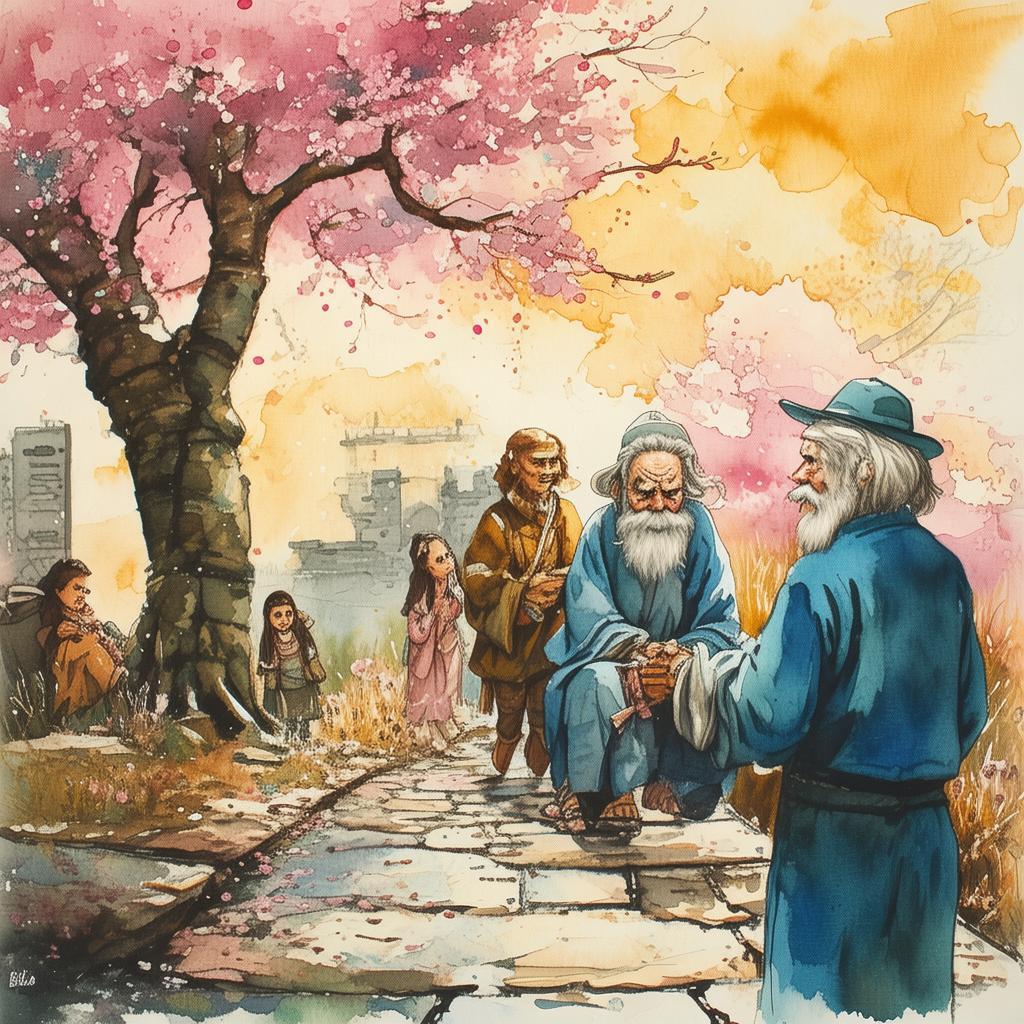
This longing was for recognition, not merely the praise of her celestial kin, but the respect and admiration of a mortal man—a man whose words had the power to touch the soul, a man whose name was synonymous with the essence of poetry: Li Bai.
Li Bai, the greatest poet of his time, was a man who sought to capture the essence of life in every line he penned. His verses danced like the flames of the bonfire, his words painting pictures that could only be truly understood by the heart. It was this ability to reach into the depths of the human spirit that made his poetry so revered, and it was this reverence that Chang'e yearned for.
One moonlit night, Chang'e decided to embark on a quest to bring her longing to the mortal realm. She would become a mortal woman, a mere mortal, in the hopes of meeting Li Bai and earning his recognition. With a tear in her celestial eye, she transformed herself into a humble traveler, her moonlit path paved with the dreams of poetry.
She descended from the moon's soft glow, her silhouette a mere shadow against the starlit sky. As she reached the mortal world, Chang'e found herself in a bustling town, where the scent of the sea mingled with the aroma of incense from distant temples.
Her journey was arduous. She traveled through vast deserts, crossed roaring rivers, and navigated treacherous mountains. Each step brought her closer to her goal, but also closer to the realization of her own mortality. The pain of separation from the celestial realm began to weigh heavily upon her, but the thought of Li Bai's admiration kept her going.
Finally, Chang'e arrived in the ancient city of Chang'an, the capital of the Tang Dynasty. She wandered through the streets, her heart pounding with anticipation. She had seen his poems, she knew his name, and now she was ready to meet him.
One evening, as the sun dipped below the horizon, Chang'e found herself at the Great Wall, where Li Bai was said to have written many of his famous verses. She watched as he walked the wall, his mind lost in thought, his quill scratching the parchment with ease.
With a deep breath, Chang'e stepped forward, her voice soft and melodic, like the tinkling of a jade bell. "Master Li Bai, I have come to you from afar, seeking recognition for my own poetry."
Li Bai turned, his eyes reflecting the last light of the setting sun. "And who might you be?" he asked, his voice laced with curiosity.
"I am Chang'e, the moon goddess," she replied, her voice trembling slightly with emotion. "I have come to seek your admiration for my own verses."
Li Bai listened intently as Chang'e shared her poems, her words weaving a tapestry of celestial beauty and mortal longing. The poet's eyes sparkled with recognition as he realized the depth of her soul.
"Your poetry is as profound as the moon itself," he declared, his voice filled with admiration. "You have earned my respect, Chang'e."
The meeting was brief, but the impact was profound. Chang'e's quest for recognition had led her to the heart of human experience, and in doing so, she had found her own identity. She realized that her place was not merely in the heavens, but in the hearts of those whose lives were touched by her poetry.
As Chang'e prepared to return to the moon, Li Bai bestowed upon her a copy of his own poetry, inscribed with his most heartfelt words of praise. "Keep this, Chang'e," he said. "Let it remind you of the respect you have earned among mortals."
With a heart full of gratitude and newfound understanding, Chang'e ascended back into the celestial realm, her moonlit path now paved with the glow of the poetry that had brought her recognition. The mortal world had taught her the value of connection, of being seen and heard, and of the enduring power of the written word.
And so, Chang'e returned to her celestial abode, her soul now at peace, knowing that her quest for recognition had led to a profound encounter between the divine and the human realms, and that in the eyes of Li Bai, she was more than just the moon goddess; she was a poetess whose words would echo through time.
✨ Original Statement ✨
All articles published on this website (including but not limited to text, images, videos, and other content) are original or authorized for reposting and are protected by relevant laws. Without the explicit written permission of this website, no individual or organization may copy, modify, repost, or use the content for commercial purposes.
If you need to quote or cooperate, please contact this site for authorization. We reserve the right to pursue legal responsibility for any unauthorized use.
Hereby declared.
